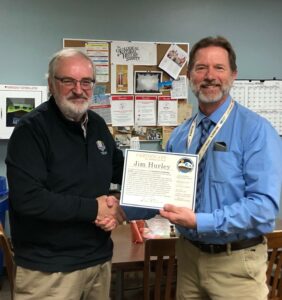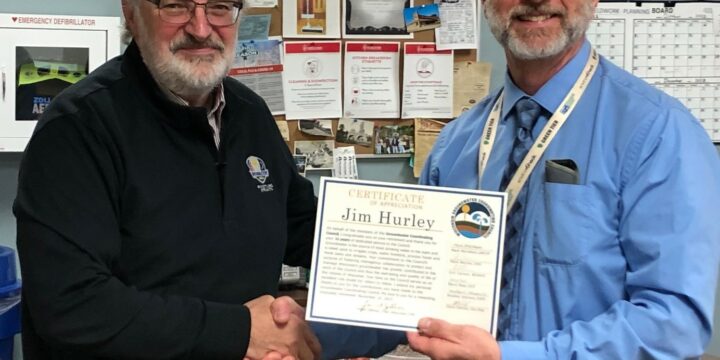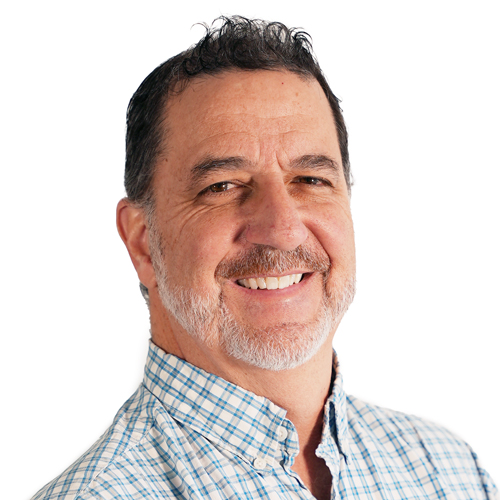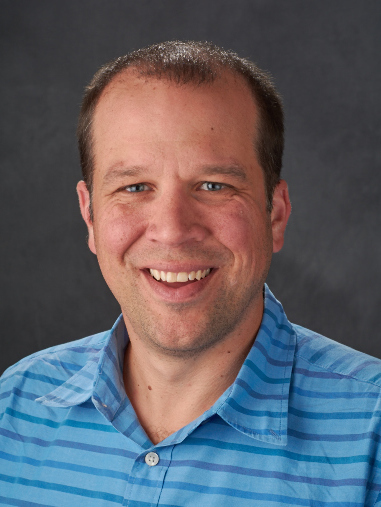Former director of the University of Wisconsin Water Resources Institute (WRI), Jim Hurley, last week received a certificate of appreciation for his service on the State of Wisconsin’s Groundwater Coordinating Council (GCC).
Hurley spent 11 years as a member of the body that was created by the state legislature in 1984 to both facilitate interagency cooperation of those departments that have jurisdiction over water and foster research, monitoring and education around Wisconsin’s 1.2 quadrillion gallons of groundwater. Hurley was the GCC representative from the Universities of Wisconsin.
In highlighting his contributions, Jim Zellmer said Hurley was invaluable to “funding efforts, placement of postgraduate fellows and really supporting all of the research, education and outreach that has benefited the Groundwater Coordinating Council, the agencies that participate in the council and the state as a whole.”

Zellmer chairs the GCC and is a deputy division administrator for the Wisconsin Department of Natural Resources (DNR), overseeing drinking water and groundwater and water quality programs, as well as the Office of Great Waters.
Hurley said the GCC is an amazing resource that brings entities together to solve problems. He said many other states look to Wisconsin as a model for cooperative groundwater study and ongoing monitoring.
In particular, he called out the research that led to better understanding the scope of naturally occurring radium compromising drinking water in Waukesha, Wisconsin. That work led to the unprecedented approval from Great Lakes governors and premiers to allow residents of this southeastern Wisconsin community outside of the basin to draw drinking water from Lake Michigan as a solution to protect public health.
Hurley also invoked a study about per- and polyfluoroalkyl substances (PFAS) that was released in early November. He complimented the research team for recognizing the value of drawing on both state and federal agency knowledge along with that of academia. The study presented an important picture of PFAS prevalence and levels in private drinking water wells across the state.
“It was great to see how quickly the state, and a little bit of the feds in there too, and universities responded to PFAS” in the groundwater, Hurley said.
In October, Hurley retired as the WRI director. During his years on the GCC, he managed a groundwater research competition that allows potential investigators to submit to several funding sources simultaneously. Then, the WRI arranges for peer review of all submitted proposals, easing funding decision-making for those providing the dollars for the eventual projects.
During Hurley’s tenure there were 82 research projects funded by the universities and the state of Wisconsin departments of Natural Resources, as well as Agriculture, Trade and Consumer Protection (DATCP). The research topics were diverse but can be broadly characterized as addressing groundwater quantity, quality and management.
In addition to the DNR, DATCP and the universities, other GCC members include the Wisconsin Geological and Natural History Survey and the state of Wisconsin departments of Safety and Professional Services, Health Services and Transportation.




